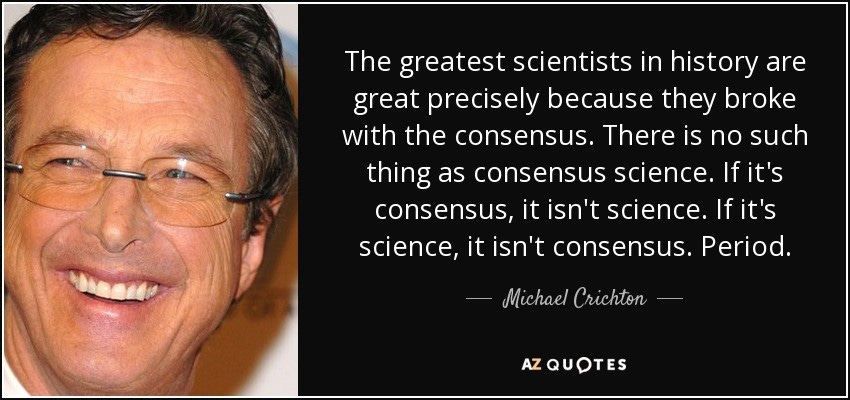Some people were quite upset when President Trump exited the Paris Climate Accord for the second time. These are the ones who believe there is an immediate, existential threat to our planet from climate change. They also believe that CO2 is poison, but that’s another matter.
We’re accustomed to trusting scientists, but as the regulation, coercion and even reliable information about Covid proved, “trust, but verify,” as Ronald Reagan said. The profitability of clinging to believe that we are in danger is simply too high. Prior to getting “green,” Al Gore wasn’t a rich man. He certainly is now.
The Cost of Failing to Agree
There is a risk to any scientist who doesn’t agree with the predominant story. As an example, a paper that was peer-reviewed, widely cited and generally trusted was mysteriously retracted under pressure from prominent voices in the climate world a year or so after publication. The paper itself was only in a relatively obscure journal, but the import was clear. Italian physics and meteorology researchers examined data on extreme weather events, they could find no evidence that these events had increased in frequency. This covered heatwaves, tropical cyclones, extreme precipitation events, tornadoes, droughts, floods and crop failure. These results flew in the face of the fear-mongering we hear all the time. Note that no one found any problems with the research that was performed. The paper was retracted because it conflicted with climate alarmism. It isn’t the only case of scientists being shunned, dissed, and harassed for failing to comply.
More recently, “climate change” has been blamed for the LA fires, not the more probable issue that we have been building houses in areas that were already prone to regular fires. There were also arson events, as well as the failure of many people to keep their areas free of combustibles. In fact, a paper was published in Nature Communications citing the extreme risk of fires in LA due to “anthropogenic warming.” The problem with this scary report is that the “scientists” didn’t use real world data, but instead, unproven models. Other models that have been used have been similarly flawed. In my work, I used computer models which were constantly tested against real-world results, input with real data. This is the bare minimum needed to validate them.
It is critical to note that in the wildfire paper, they admitted that it was impossible to measure how much climate change contributed because of “confounding factors,” which they never explained. Later, the authors “left out the full truth to get their paper published.” Does this sound like science to you?
The lead author actually admitted the problem in an article he published in another journal. “I just got published in Nature because I stuck to a narrative I knew the editors would like. That’s not the way science should work,” said Patrick Brown. He also noted that “it is critically important for scientists to be published in high-profile journals. They are gate-keepers for career success in academia. The editors of these journals have made it abundantly clear, both by what they publish and what they reject, that they want climate papers that support certain preapproved narratives, even when those narratives come at the expense of broader knowledge for society.”
Brown admits they had to ignore the contribution of people to fires, which he felt often had far more impact on risk than climate change.
Consensus is Not Science
In fact, consensus is the opposite of science. We benefit from people challenging what is “known,” because from that, we get closer to the truth. If you go back to what was “known” about science long ago, we come to beliefs that bathing was dangerous, that you didn’t need to clean your hands prior to operating on people or delivering babies, that smoking was healthy (just ask your doctor then) and so much more. All our great discoveries were made by challenging and overturning accepted truths.
Going forward, I ask you to see the word “consensus” as a warning. When you read anything about science, look for dissenters. We can only approach truth by trial and error, never really understanding anything. If you think I’m just blowing smoke, ask a physicist to explain gravity. Hint: they’re working on it.
I thank H. Sterling Burnett for the details in this blog, taken from his article in the Epoch Times. Before we spend trillions of dollars solving a problem, let’s make sure we actually have a problem, understand it, and have a real solution for it. Right now, we’re nowhere close to it. In my mind, climate change is just another mirage that is giving governments more power over us, not a real threat.





Totally agree with the bullying happening in what should be an objective community. I have also heard of other cases about not being published for the same reason. I have a real gripe with the “most trusted” weather channel who have hopped on the bandwagon too. I’d be curious to know who it is that gets to make the definitive declaration that we are undergoing climate change? We’ve regressed back to Middle Ages mentality.